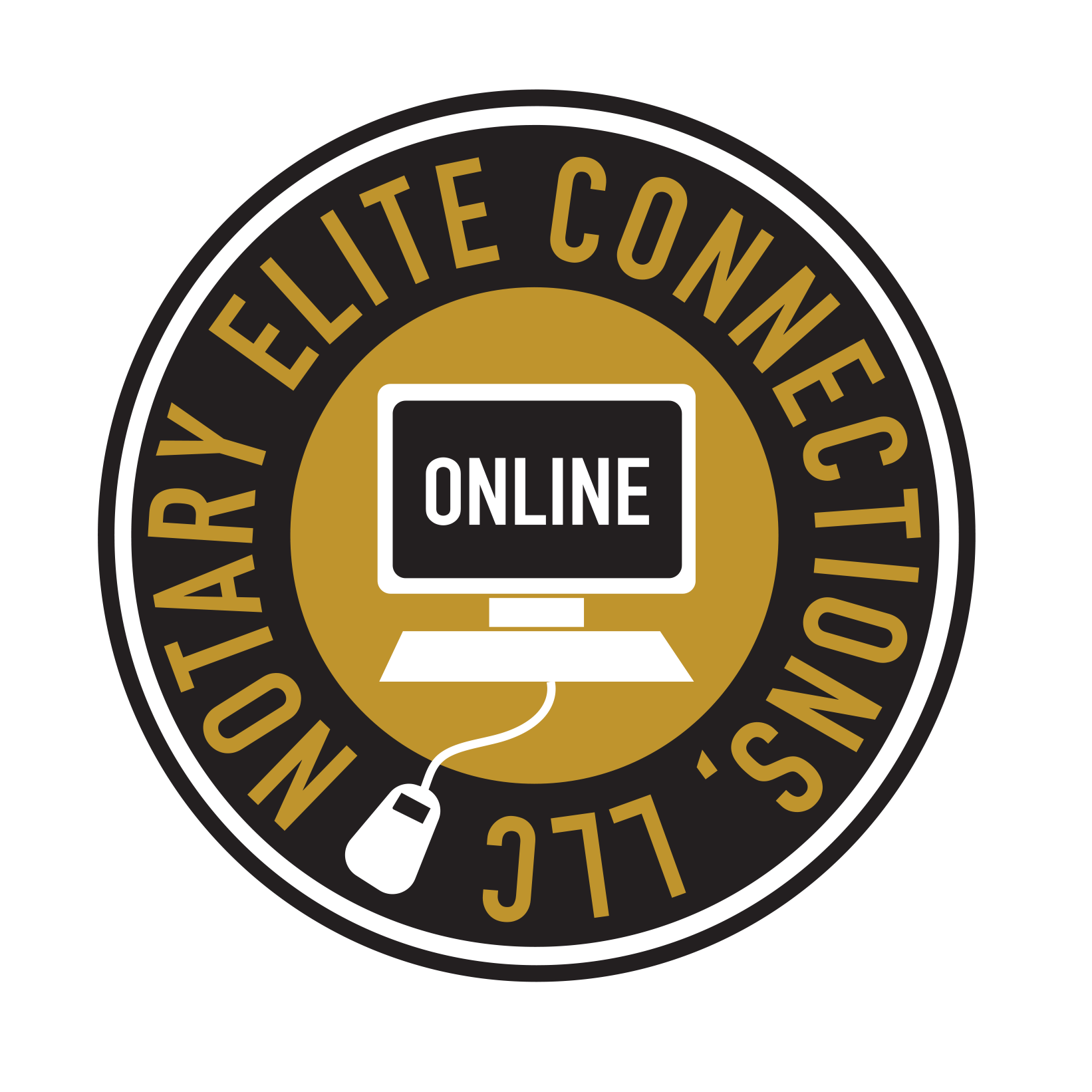Requirements
For Remote Online Notarizations
Please read carefully before booking your remote notarization and take all of the below listed items very seriously. You will be charged for a full session even if you are unable to complete it due to improper technology or unacceptable IDs. It is in your best interest to make sure you are prepared in the same way that you would be for an in-person signing.



Technology Requirements for RON
Remote Online Notarizations are completed strictly online. This is why technology is THE most important factor for a successful online notarization. If you do not have access to one of the following items, the session might fail:
– Laptop/PC/iPad
– Video camera
– Microphone
– High Speed Internet
– Google Chrome or Safari browser
– Updated software
Please take the above items seriously and test your technology before making the appointment. You may think that your laptop is perfectly fine, but you did not recently update your software or you are using Internet Explorer as a browser. Both those circumstances might cause your signing to fail.
Online Presence
Remote Online Notarizations are completed strictly online. Each signer will receive a secure link in order to join the signing session. Signers MUST be present and visible through a video conference online. If a signer is not present in the signing room or is not visible, the session may not continue.
ID Requirements
Signers must provide at least one (1) primary valid, unexpired photo ID that contains the names shown on the documents.
Acceptable forms of ID include:
- Passport
- Driver’s license
- National ID card
- US Military ID card
- Resident Alien ID Card (Green Card)
Unacceptable forms of ID include:
- Any of the above IDs with expired validity
- Birth certificates
- Social Security Cards
- Credit or debit cards
International clients will be required to provide two (2) valid forms of ID from the Acceptable IDs list above.
Some States in the US will require us to validate one (1) form of primary ID and perform a KBA (knowledge based assessment) of the signer.
KBA Questions
Some States in the US will require us to validate one (1) form of primary ID and perform a KBA (knowledge based assessment) of the signer. KBA is a set of 5 or more questions that have to do with your past addresses, jobs, people you know, etc. The purpose of these questions os to make sure that you are the person you say you are. You will have 2 minutes to complete the questions and you need to get 4/5 right in order to proceed with the signing. You may have up to three (3) tries and if you fail all 3 times, we will have to reschedule your signing.
Witnesses and Credible Witnesses
Some states require up to two (2) witnesses per Notarial statement. Some states allow the Notary to act as one of the witnesses, while other states don’t allow it. If your documents require witnesses, please make sure to secure those before the session. They will need to be present throughout the session and also sign the documents. They will also need to provide valid forms of ID which will be verified before the session.
Credible witnesses are required to sign an affidavit which states:
The signer of the document is known to the credible witness.
The credible witness believes the signer of the document does not possess an acceptable form of identification.
The credible witness believes the signer of the document is reasonably unable to obtain an acceptable form of identification.
The credible witness has no financial interest or incentive for the document’s execution.
Oaths and Affirmations
Depending on the document that is being Notarized, you will be asked to perform an Oath or Affirmation.
Difference Between An Oath And An Affirmation
While both oaths and affirmations are notarial acts that compel a person to tell the truth, an oath is a solemn, spoken pledge to God or a Supreme Being, while an affirmation is a spoken pledge made on the signer’s personal honor with no reference to a higher power. Either is considered acceptable, and the choice is left to the signer.
Competency and Comprehension
All signers need to be competent to sign and be fully alert and be able to prove to the Notary that they understand the contents being signed. Nodding is not sufficient. If the signer cannot speak, then he or she will need to be able to write out complete sentences to questions like: “Please explain what a Power of Attorney is or does?” I cannot notarize someone with Alzheimer’s or dementia or someone on medication that makes the signer extremely drowsy. You may need to go to court to be able to take over the signing responsibilities for someone if signing a document such as a Power of Attorney cannot be notarized because of these issues.
Foreign Language
I only perform Remote Online Notarizations in English and all documents must be in English. If a signer does not speak English he/she will be required to secure a translator. Translators may not be minors and they need to be able to explain all the documents in detail. Notaries are required to make sure that the signers know exactly what they are signing in order to prevent fraud. We do not provide translation services.
…and One Recommendation
Please read through all of the above one or two more times!
